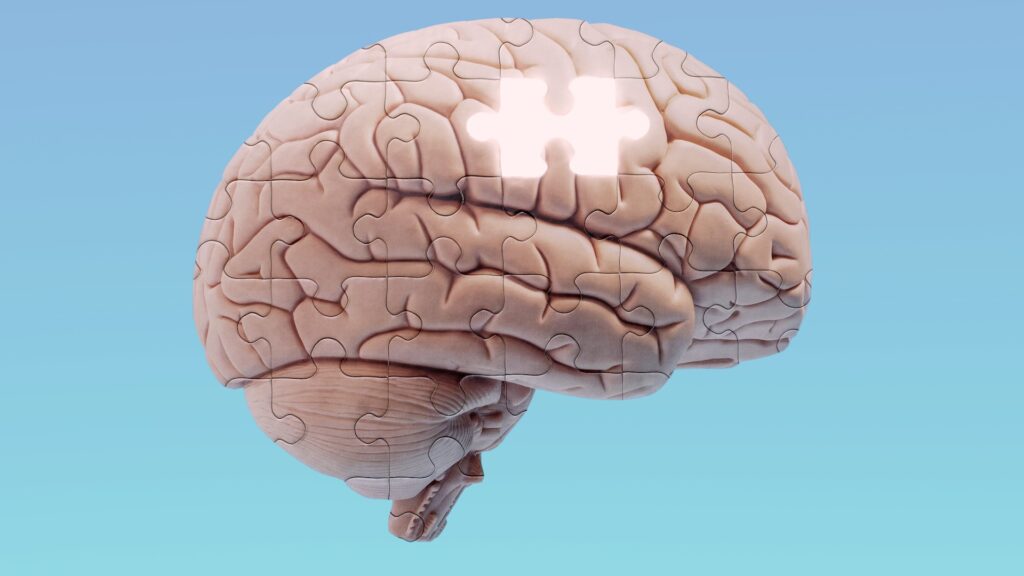Can you run out of all your phone’s storage or maximize your computer’s drive, but can you run out of all your brain’s memory space?
Despite feelings after a sleepless night before exams and before work deadlines, neuroscientists say that memory abilities are not fixed or easily exhausted for the typical, healthy brain.
Elizabeth Kensinger, professor of psychology and neuroscience at Boston University, said: “Memory can be thought of as data the brain uses to understand the present moment and predict the future.
You might like it
This is because the brain does not store memories as files separated into one specific neuron. Instead, a single memory is distributed across many neurons called engrams. This is a group of brain cells that are connected and scattered throughout the brain area. Neuroscientists refer to this pattern. In this pattern, memories are recorded as distributed representations in many neurons. Each of these individual brain cells plays a role in many different memories.
Think of memories of a 12th birthday party. It is not stored in a single mental folder. The colour of balloons, the taste of cake, the sounds of friends, and the sense of excitement all activate a variety of sensory and emotional centres, including the visual cortex, taste cortex, auditory system, and emotional processing areas. These regions fire together in a specific pattern, and their patterns of neural activity preserve memory. Reminiscing the party later revitalizes the pattern.
This method has a great advantage. Neurons can participate in many combinations, allowing the brain to code a huge number of memories. Kensinger suggests that related memories share overlapping patterns and help to generalize and create predictions. Many neuroscientists believe that this is the reason for memory. Additionally, if a small number of neurons are damaged, the memory is not stored in just one place and may be recoverable.
Paul Leber, a professor of neuroscience at Northwestern University, explained to Live Science that distributed representations are part of what gives the brain a greater memory capacity. Because each neuron is involved in many memories, including overlapping neurons, the potential combination grows exponentially.
Why don’t you remember everything?
If your brain is not restricted to memory space, why don’t you remember everything? This is because the brain’s memory system runs much slower than life happens. Information is constantly flowing, but only a small percentage of it can be used to make it long-term storage.
Reber suggested thinking of memory like a video camera that works only at 10% of its capacity. We only remember one tenth of the specific events, experiences, and encounters we experience.
Information entering our memory system is gradually defined in durable memories that are there over a long period of time. The process is called integration.
“Storage processes are a real bottleneck,” Reber told Live Science. “It’s not the total amount of space you have.”
What determines what we hold and what we forget?
Every time, an incredible amount of information appears in our brains from all our senses, but we don’t need to remember it all.
Lila Dhavac, professor of psychology and neuroscience at Columbia University, did not evolve human memory due to perfect recalls. Our memory systems have evolved for survival, so we prioritize what will help us navigate the world.
“Memory systems are built to be adaptive and encode only what is needed,” Dabachi told Live Science.
“We just happened to get it better and have this extra sanctuary where we can remember what happened when we were in college,” Dabachi said. “It’s not adaptive. We argue that we don’t need it. Why is our memory system keeping it? Well, it’s probably just an accident.”
Kensinger explained that there is efficiency in how the brain processes and remembers information. “When similar information is encountered over and over again, the brain tends to move from storing certain details to storing more general content or information schemas. This is an efficient way to store information.”
Consider driving to school or work. Most of them are similar, so you don’t remember all the trips. Rather than storing each drive as its own memory, it reminds me of general experiences. “The brain tends to store details of certain drives. Kensinger added, “probably the road was flooded or they avoided an accident narrowly.”
Our brains are far from escaping the universe and always reconstruct what we know to help us adapt, predict and learn. So, the next time you forget where you left your coffee cup, don’t worry. You don’t run out of space. Your brain may have had more important things to remember.
Psychology Quiz: What do you know about the most infamous experiments in psychology?
Source link

